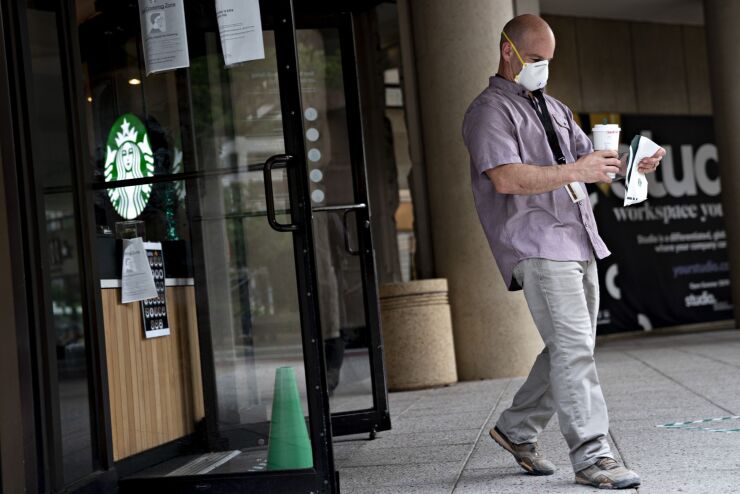Much of the shift towards digital shopping and payments is likely to outlast the coronavirus pandemic, giving Starbucks an extra reason to open its incentive marketing to broader payment methods.
The coffee chain will allow consumers to use more payment options without having to preload a gift card card to pay for its Starbucks Reward program, which is linked to its mobile payment app. This fall it plans to add PayPal, credit, debit cards for in-app payments, or mobile wallets to pay in person. Cash is also an option, though Starbucks has mostly focused on expanding mobile and other digital payment options in the recent past.
There’s still extra incentive to use the preloaded Starbucks Card. The “points,” or Stars, accumulate at twice the rate for Starbucks cards. Starbucks’ language also suggests not all of the major wallets will be available — or that their participation has not yet been secured. Starbucks did not make an executive available for comment.
Starbucks has taken a hit during the pandemic,

Its loyalty program has been a bright spot, with nearly half of Starbucks' sales by the end of May coming from Rewards members, up from 44% at the end of March. Starbucks' reward program has about 19 million members. Starbucks did not link the expansion of its loyalty program to the pandemic, but there is a potential benefit of adding more contactless and digital options given the broad and rapid
The coronavirus-driven store closures and fear of contagion have accelerated the trend toward digital commerce, but consumers and retailers were already moving in that direction. Writing for
The card brands have increased limits for contactless transactions, creating a
“Intuitively it makes a lot of sense. Even as the lockdowns are lifted, with so many people working from home or losing their jobs altogether, many retailers are experiencing lower footfall, and even Starbucks is not immune to that,” said Zil Bareisis, a senior analyst at Celent.
Starbucks in 2019 entered a deal with
Starbucks was a pioneer of mobile payments technology, which was a good fit for the demographics of its customer base, which include office workers stopping in for their daily coffee fix. As other quick serve chains, such as
The pandemic, which has hit the economy and drawn a large part of Starbucks' patrons away as they work-from-home, caused the coffee chain to close about 400 traditional stores, redesign others and place more emphasis on pickup.
That also makes it more important for Starbucks to change its incentive marketing to rely less on in-store visits and its own branded plastic card.
“In these difficult times, you want to expand your loyal customer base, and the last thing you’d want to do is limit payment options to those that still come through the door,” Bareisis said.





